People drink to self-medicate anxiety, depression, and stress, but alcohol only provides temporary relief before making these conditions worse. Drinking depletes the neurotransmitters your brain needs for mood stability, disrupts sleep cycles that regulate emotions, and creates rebound anxiety that's more intense than what you started with.
Going soberish breaks this destructive pattern. When you cut back on alcohol, your brain chemistry rebalances, sleep quality improves, and anxiety drops. Improved mental health is just one of the many health benefits of the soberish lifestyle.
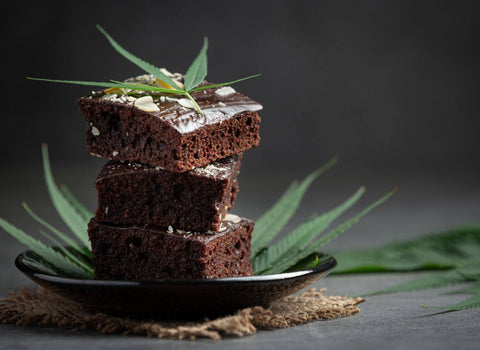
Our cannabis beverages support the mental wellness approach by delivering microdosed compounds that calm anxiety and enhance mood. One sip of our soberish buzztails™, and you get relaxation and emotional balance without negative effects on your health.
How does alcohol make you feel good?
Alcohol triggers a release of feel-good brain chemicals that create temporary pleasure and relaxation. When you drink, alcohol floods your brain with dopamine, the neurotransmitter responsible for motivation, pleasure, and reward. Di Chiara's research shows that "even low alcohol doses can increase dopamine release in part of the nucleus accumbens," which "may contribute to the rewarding effects of alcohol and may thereby play a role in promoting alcohol consumption."
Alcohol provides an artificial boost to serotonin, your brain's mood-regulating chemical. This temporarily makes you feel less depressed, with lifted spirits and reduced emotional distress. Drinking also enhances GABA release, your brain's primary calming neurotransmitter, which reduces anxiety and promotes relaxation.
These neurochemical changes are why people turn to alcohol to self-medicate stress, depression, and social anxiety. The dopamine surge creates a "high" that feels rewarding, while serotonin temporarily alleviates sadness, and GABA calms nervous tension. This combination makes alcohol feel like an effective emotional coping tool.
But these pleasant effects are short-lived and come with a devastating cost to your long-term mental health.
Why is alcohol bad for your mental health?
After alcohol's temporary mood boost wears off, your brain chemistry crashes harder than before you started drinking. The artificial high comes with devastating long-term consequences that systematically destroy your mental wellness.
- Chronic drinking depletes dopamine: The artificial dopamine surge depletes your natural reserves, leaving you with lower motivation and pleasure than your baseline. Banerjee et al. show this creates "anhedonia, apathy, and clinical depression, robbing you of the ability to feel motivation or pleasure."
- Alcohol crashes your serotonin: While alcohol initially acts like an antidepressant, it interferes with production and depletes reserves of serotonin, making you feel anxious and irritable, impairing your sleep, leading to cloudy thinking, and clinical mood disorders.
- Drinking damages your GABA system: Kumar et al. discovered that regular drinking depletes GABA receptor density and disrupts the signaling between GABA and its receptors. This reduces your brain's natural calming ability, so you are more susceptible to anxiety and stress than before you started drinking.
- Heavy drinking can shrink your brain: Heavy drinking physically damages brain regions critical for emotional regulation. According to a 2001 study, "heavy drinkers had significantly shrunken frontal lobes compared with abstainers.” This leads to mood instability and poor impulse control.
- You can experience severe withdrawal mood crashes: A 2014 study found that during withdrawal, the brain releases less serotonin, which increases the negative mood states that drive you to drink again just to feel normal.
This is why more people embrace the sober curious and soberish movements. When you’re soberish, you get the mental health perks of alcohol abstinence without the social isolation or pressure of sobriety.
How does mental health improve after going soberish?
When you skip drinking for days or weeks, your brain chemistry starts repairing itself from the constant damage. The changes happen slowly since you're still drinking sometimes, just not drowning your brain in booze every night. Here are some mental health improvements you can experience when you go soberish:
- Mood swings become less intense without alcohol disrupting your brain.
- Sleep improves on alcohol-free nights when your brain isn't processing toxins.
- Anxiety feels more manageable because you're not triggering rebound anxiety as often.
- Emotional reactions feel steadier as your stress system gets occasional breaks to recover.
- Mental fog lifts on sober days without alcohol clouding your thinking.
- Stress becomes easier to handle as you develop coping strategies beyond drinking.
The soberish lifestyle breaks the cycle where you drink to feel better, then feel worse, then drink again. Many soberish people replace some drinks with cannabis alternatives that calm anxiety and lift mood without wrecking their neurotransmitters. THC and CBD help regulate mood and stress without the chemical crashes.
Our Buzz Drops™ contain 2.5 mg each of THC and CBD that work together to calm racing thoughts and ease social anxiety. These microdoses support your neurotransmitter balance while you socialize. Mix them into any drink for gentle relaxation that keeps you clear-headed and emotionally stable.
Cannabis alternatives give your mental health a chance
Cannabis alternatives to alcohol are the best soberish drinks for mental health because THC and CBD work with your brain's endocannabinoid system (ECS) to regulate mood, anxiety, and stress response. Your brain contains CB1 and CB2 receptors that respond to cannabis compounds, controlling neurotransmitter release and reducing inflammation throughout your nervous system.
Research shows THC follows a biphasic pattern for anxiety: low doses reduce anxiety while higher doses trigger it. THC increases anxiety by disrupting GABA production, your brain's natural calming chemical. But at microdose levels, this disruption doesn't occur. THC enhances mood without triggering panic or racing thoughts.
Microdoses of THC (under 10 mg per serving) target your mental wellness by:
- Activating CB1 receptors that boost dopamine production for improved mood and motivation.
- Reducing cortisol levels and inflammatory cytokines that worsen anxiety and depression.
- Enhancing GABA function to promote natural relaxation without sedation.
- Supporting neuroplasticity and healthy brain cell growth through cannabinoid receptor activation.
- Balancing the endocannabinoid system that controls mood, sleep, and stress response.
CBD supports mental health through different pathways than THC. De Gregorio et al. show that this cannabinoid modulates serotonin receptors while preventing the breakdown of your body's natural endocannabinoids. CBD's anxiety-reducing effects work through 5-HT1A serotonin receptors and restore normal brain function in areas disrupted by chronic stress and pain.
When you combine THC and CBD, they create the entourage effect, where each compound amplifies the other's health benefits. CBD prevents THC from triggering anxiety while THC boosts CBD's mood-lifting effects. This combination hits multiple brain systems at once to support your mental health more effectively than either compound alone.
Our Buzz Packs™ combine microdoses of THC and CBD to trigger the entourage effect, delivering 5 mg of each cannabinoid in a precise 1:1 ratio that calms anxiety without impairment. Mix into any drink for discreet stress relief that keeps you clear-headed and functional.
Delicious soberish buzztails™ for your mental wellness
Ditch the hangover and embrace the buzz. Our THC-infused mocktails give you the social relaxation you crave without alcohol's mental health destruction. Each buzztail contains cannabis microdoses that calm anxiety, lift mood, and keep you clear-headed while you socialize.
Cannabis strawberry lemonade
Our recipe for the THC strawberry lemonade combines fresh strawberries and lemon juice with cannabis infusion to deliver natural vitamin C and antioxidants. THC and CBD work together to reduce stress and promote emotional balance. The fruity sweetness masks any cannabis taste, making this strawberry lemonade approachable for soberish newcomers.
Blackberry lemon cannabis mocktail
Our blackberry lemon cannabis mocktail blends blackberry preserves, citrus, and tonic water with therapeutic cannabinoids that provide powerful antioxidants to support brain health. This drink helps regulate mood without the anxiety spikes that alcohol can trigger during your soberish transition.
Cannabis mojito mocktail
The cannabis mojito mocktail features fresh mint, lime, and sparkling water infused with cannabis to deliver natural digestive support and cooling effects, while lime adds vitamin C. This virgin mojito replaces alcohol's temporary mood lift with mental clarity and feel-good vibes that won't crash your energy.
Cannabis Paloma mocktail
This cannabis Paloma mocktail combines fresh grapefruit juice, lime, and sparkling water with cannabinoids to satisfy cravings for complex cocktail flavors without cognitive damage. Our virgin twist on the classic cocktail supports neurotransmitter balance, giving you genuine relaxation instead of alcohol's artificial dopamine spike.
Cannabis rosemary cider
Cannabis rosemary cider blends apple cider, orange juice, and rosemary syrup with cannabis infusion, where rosemary contains compounds that support cognitive function and memory, while apple cider provides natural sugars for sustained energy. This warming mocktail delivers cozy vibes and mental clarity that alcohol can't match.
Make any of these refreshing drinks with our liquid Buzz Drops or powder Buzz Packs for instant cannabis infusion. Find more inspiration in our THC mocktail recipe book.
Product QUIZ
Need help deciding what product is best for you? Take our quiz, just three questions until your perfect match!
The best nama soberish drinks to support mental health
Buy the best soberish alternatives to booze right here at nama. We create clean cannabis beverages that support your mental health while you socialize.
Our Buzz Drops contain three ingredients: purified water, THC, and CBD—no artificial additives, sugar crashes, or chemicals that disrupt brain chemistry. Each dropper of our liquid THC drops delivers 2.5 mg of THC and 2.5 mg of CBD. This microdose calms anxiety and enhances mood without overwhelming your system. Add them to any drink for gentle relaxation that supports mental wellness.
Buzz Packs offer the same clean formula in powder form with 5 mg of each cannabinoid per packet. Take them to social situations where you want to stay mentally sharp while managing stress and anxiety.
Every batch gets third-party tested for purity and potency. We offer free shipping to 48 states with a 15% subscription savings for people committed to the soberish lifestyle.
Order nama, protect your mental health, and feel good.
Soberish lifestyle FAQ
Alcohol has no mental health benefits. While it temporarily boosts mood-regulating chemicals, this creates a rebound effect that worsens anxiety and depression. The National Institute on Alcohol Abuse and Alcoholism (NIAAA) confirms that any short-term relief leads to long-term mental illness. People seeking mental health support are better served by therapy sessions, peer support networks, or healthier coping mechanisms rather than using alcohol as emotional support.
People with attention deficit hyperactivity disorder (ADHD) often drink because alcohol temporarily quiets their racing thoughts and improves focus through its effects as a central nervous system depressant. This backfires because alcohol worsens ADHD symptoms by impairing motor control and executive function. Instead of self-medicating with alcohol, ADHD management works better through behavioral interventions, exercise routines, and structured support systems that address the root causes.
There are no health benefits to drinking alcohol that can't be achieved through safer means. Claims about heart health benefits have been debunked. Any minimal effects are outweighed by risks of liver damage, high blood pressure, and alcohol-related diseases. People looking for social relaxation or stress relief can find healthier alternatives through mindful drinking practices, holistic approaches, or social activities that don't involve substance use.
The human body doesn't need alcohol to function. It's a toxic foreign substance. Your body works hard to process and eliminate alcohol because it disrupts normal biological processes. Unlike essential nutrients, alcohol contributes to alcohol misuse, substance abuse, and various health problems. Your body functions without any alcohol consumption, and many people thrive through Dry January, Sober October, or permanent sobriety.
Alcohol cannot improve brain function. It's neurotoxic and impairs cognitive abilities even in small amounts. It disrupts memory formation, slows reaction times, and damages brain tissue over time. People seeking cognitive enhancement are better served by exercise routines, proper nutrition, sleep, and mental stimulation. Unlike alcohol, these approaches support long-term brain health without the risk of developing substance use disorders or requiring treatment programs.
Top Sellers
New? Start with our Ultimate Sampler!

THC: 10 mg | CBC: 10 mg | CBD: 10 mg | CBG: 5 mg | CBN 5mg
Resources
Di Chiara G. (1997). Alcohol and dopamine. Alcohol health and research world, 21(2), 108–114.
Banerjee N. (2014). Neurotransmitters in alcoholism: A review of neurobiological and genetic studies. Indian journal of human genetics, 20(1), 20–31. https://doi.org/10.4103/0971-6866.132750
Kumar, S., Porcu, P., Werner, D. F., Matthews, D. B., Diaz-Granados, J. L., Helfand, R. S., & Morrow, A. L. (2009). The role of GABA(A) receptors in the acute and chronic effects of ethanol: a decade of progress. Psychopharmacology, 205(4), 529–564. https://doi.org/10.1007/s00213-009-1562-z
Kubota, M., Nakazaki, S., Hirai, S., Saeki, N., Yamaura, A., & Kusaka, T. (2001). Alcohol consumption and frontal lobe shrinkage: study of 1432 non-alcoholic subjects. Journal of neurology, neurosurgery, and psychiatry, 71(1), 104–106. https://doi.org/10.1136/jnnp.71.1.104
Rey, A. A., Purrio, M., Viveros, M. P., & Lutz, B. (2012). Biphasic effects of cannabinoids in anxiety responses: CB1 and GABA(B) receptors in the balance of GABAergic and glutamatergic neurotransmission. Neuropsychopharmacology : official publication of the American College of Neuropsychopharmacology, 37(12), 2624–2634. https://doi.org/10.1038/npp.2012.123
De Gregorio, D., McLaughlin, R. J., Posa, L., Ochoa-Sanchez, R., Enns, J., Lopez-Canul, M., Aboud, M., Maione, S., Comai, S., & Gobbi, G. (2019). Cannabidiol modulates serotonergic transmission and reverses both allodynia and anxiety-like behavior in a model of neuropathic pain. Pain, 160(1), 136–150. https://doi.org/10.1097/j.pain.0000000000001386
Alcohol’s effects on the body | National Institute on Alcohol Abuse and Alcoholism (NIAAA). (n.d.). https://www.niaaa.nih.gov/alcohols-effects-health/alcohols-effects-body
Further reading
Can being soberish change your alcohol tolerance?
How to navigate social situations while soberish
Is being soberish good for your gut health?
Do cannabis beverages expire quickly?
nama CBD FDA & legal disclaimer
Our products are not intended to diagnose, treat, cure, or prevent any disease. They are not a replacement for prescription medications and have not been evaluated by the U.S. Food and Drug Administration (FDA).
The information provided on this website does not and is not intended to constitute legal advice or any statement of the status of any laws. Any information, content, and materials available on this site are for general informational purposes only and are not intended to be relied upon for any purpose.
Readers of this website should contact their attorney to obtain advice concerning any particular legal matter, including decisions on what products are, or are not, legal to sell, possess, or consume. No reader, user, or browser of this site should act or refrain from acting based on the information on this site without first seeking legal advice from their own counsel in the relevant jurisdiction.
About
Learn
Join us on this journey

© Copyright 2025 nama Products LLC. All Rights Reserved.
†These statements have not been evaluated by the Food and Drug Administration. These products are not intended to diagnose, treat, cure or prevent any disease. All information presented here is not meant as a substitute for or alternative to information from health care practitioners. Please consult your health care professional about potential interactions or other possible complications before using any product.
††The information provided on this website does not, and is not intended to, constitute legal advice or any statements of the status of any laws. Any information, content, and materials available on this site are for general entertainment purposes only, and are not intended to be relied upon for any purpose.

By clicking ‘Yes,’ you agree to our
Terms & Conditions and Privacy Policy
123 John Doe Street
Your Town, YT 12345
Store Hours
Sun: Closed
Mon-Fri: 9:00 - 17:00
Sat: 10:00 - 13:00
What to expect at pickup
Closed
Closing at 5pm
Closing at 5pm
Closing at 5pm
Closing at 5pm
Closing at 5pm
Closing at 1pm

![Buzz Drops™ [THC Drink Drops]](http://www.namacbd.com/cdn/shop/files/nama_thc_buzz_drops.png?v=1711412866&width=480)
![Buzz Drops™ [THC Drink Drops]](http://www.namacbd.com/cdn/shop/files/buzz-drop-wine-comparison.png?v=1736882023&width=480)
![Buzz Packs™ [THC and CBD Powder Drink Mix]](http://www.namacbd.com/cdn/shop/files/nama_buzz_packs_thc_drink_pack_white_background.png?v=1741884660&width=480)
![Buzz Packs™ [THC and CBD Powder Drink Mix]](http://www.namacbd.com/cdn/shop/files/Buzz_Packs_Label.png?v=1741884660&width=480)







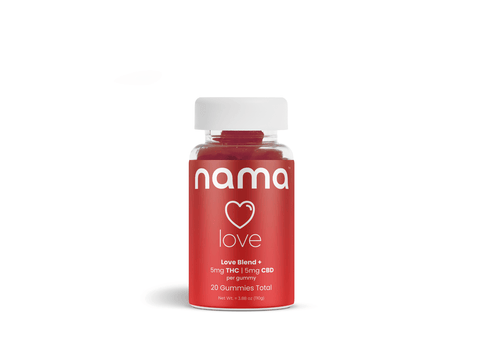
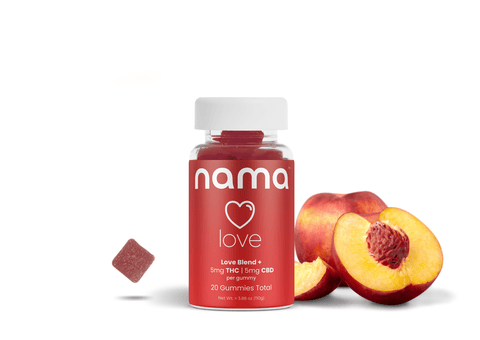


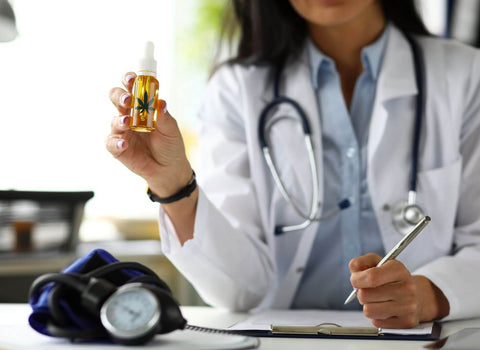
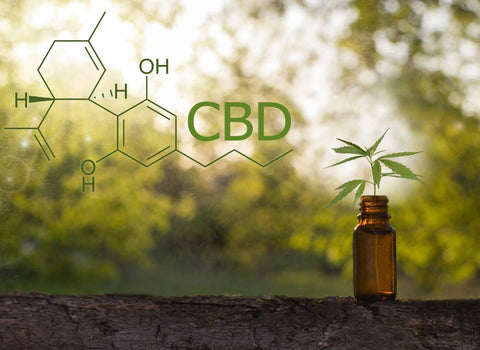

Comments (0)
There are no comments for this article. Be the first one to leave a message!